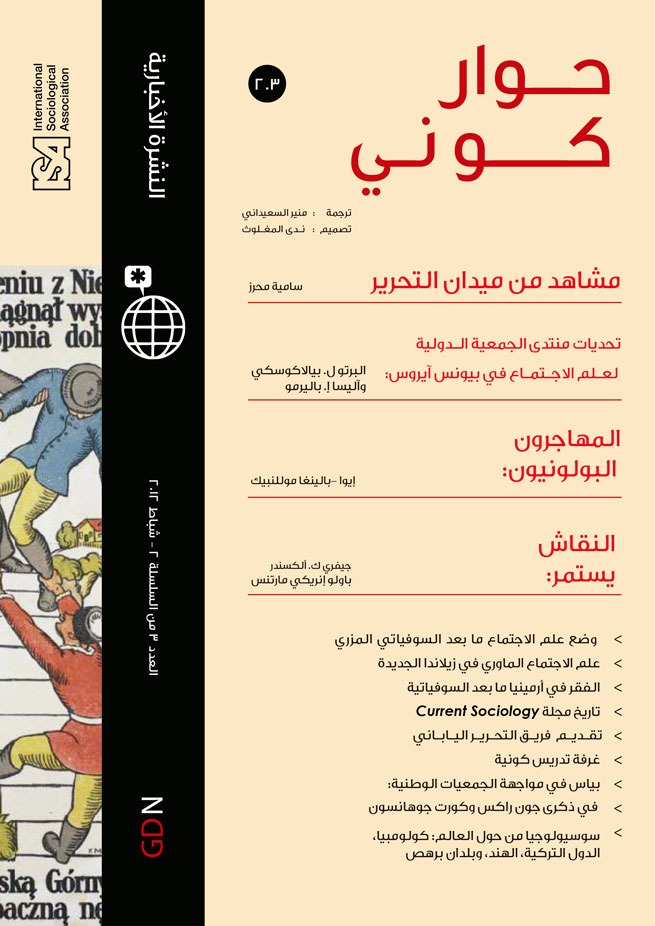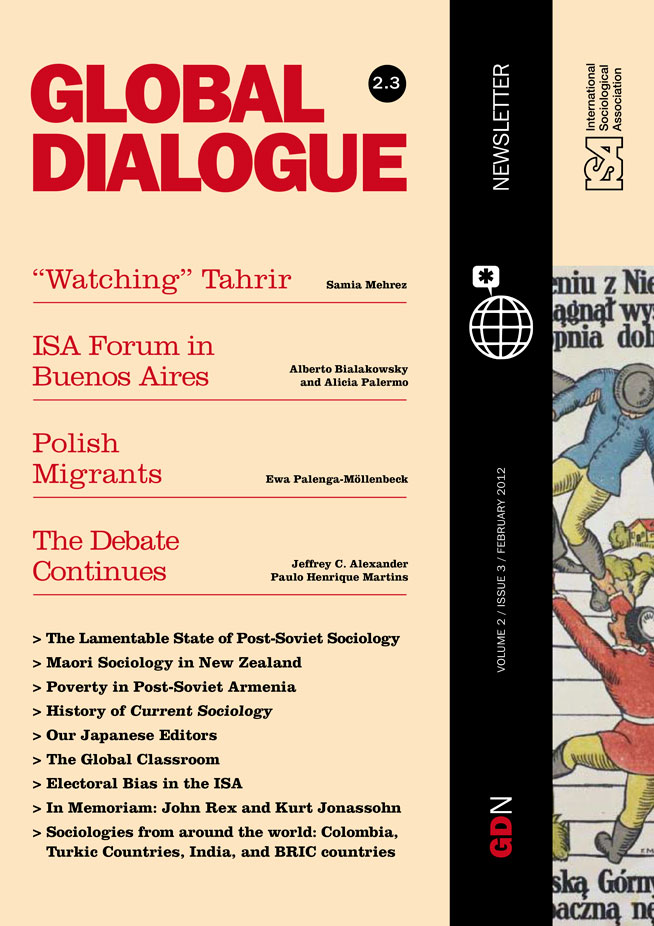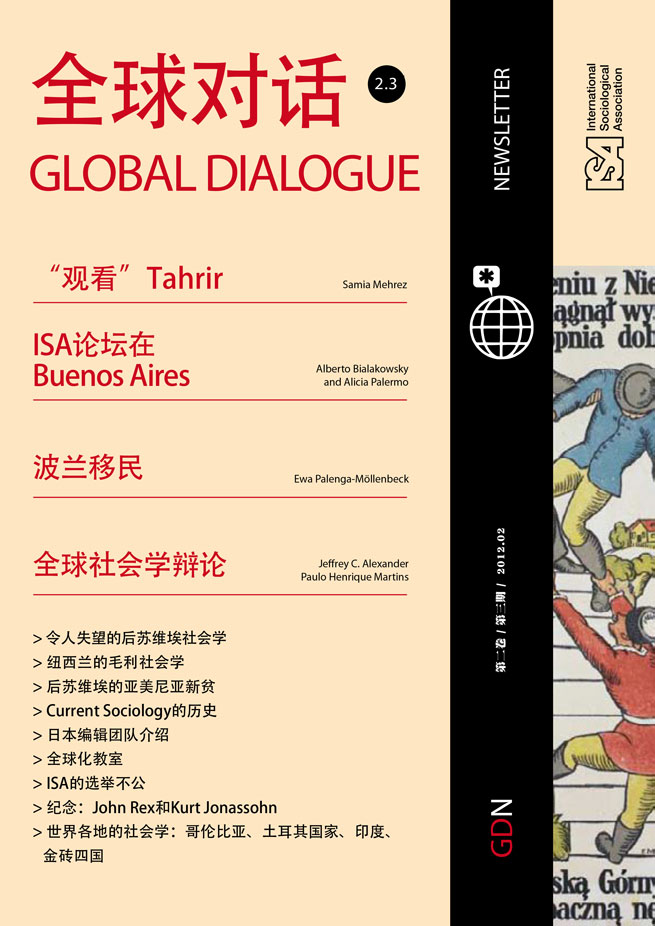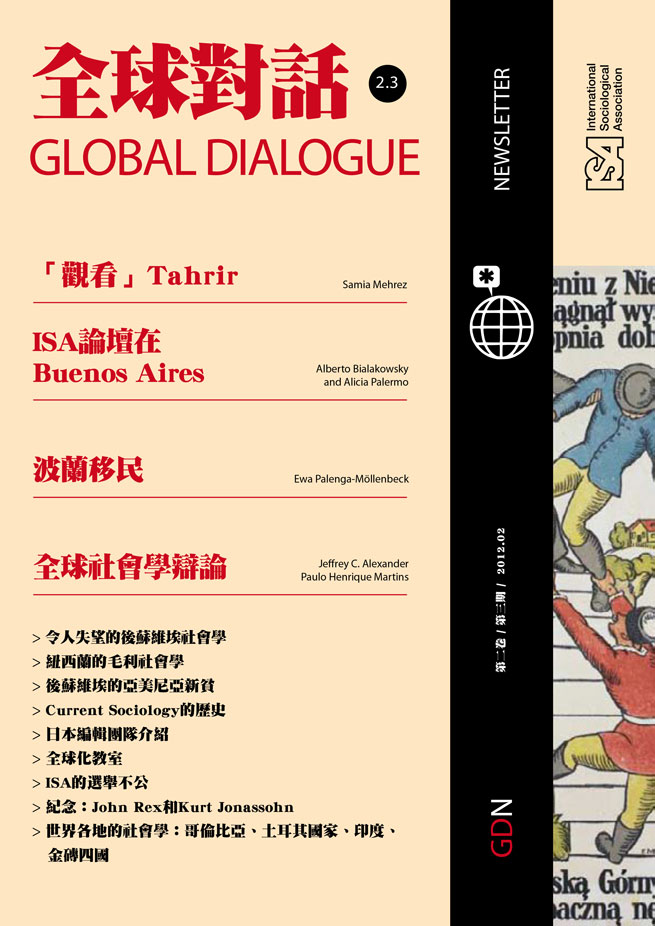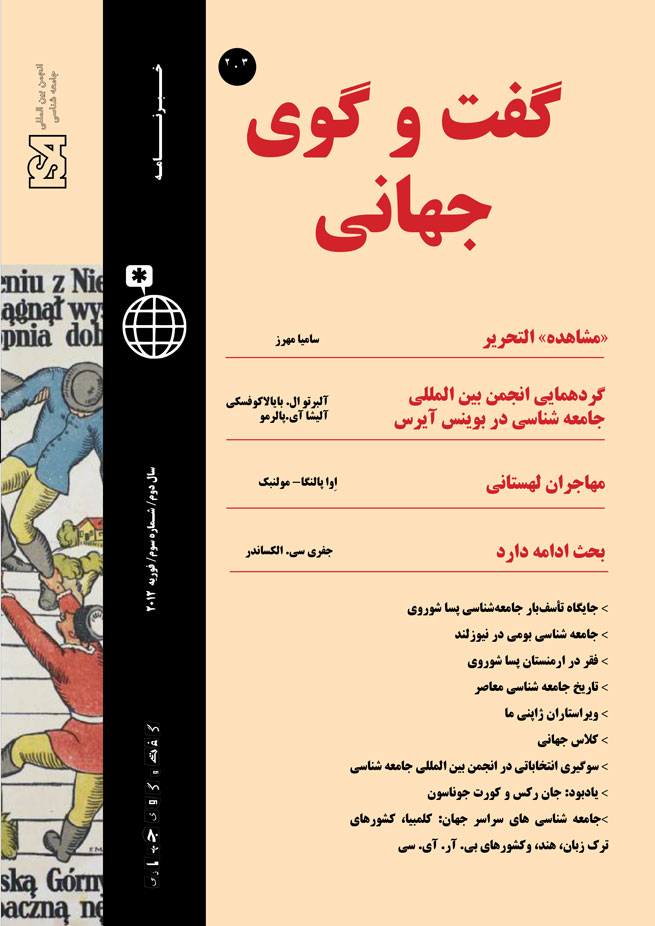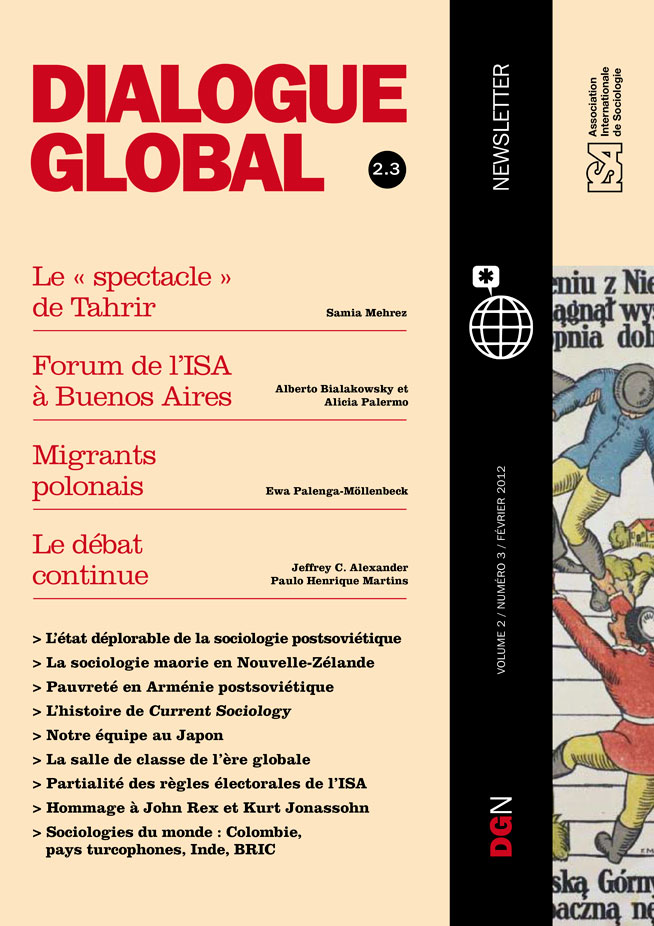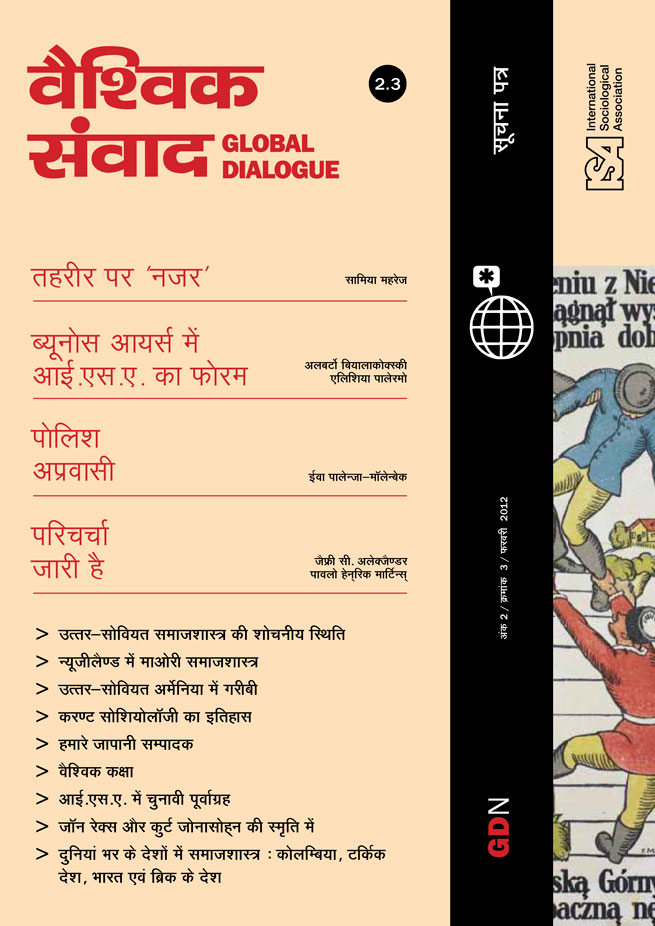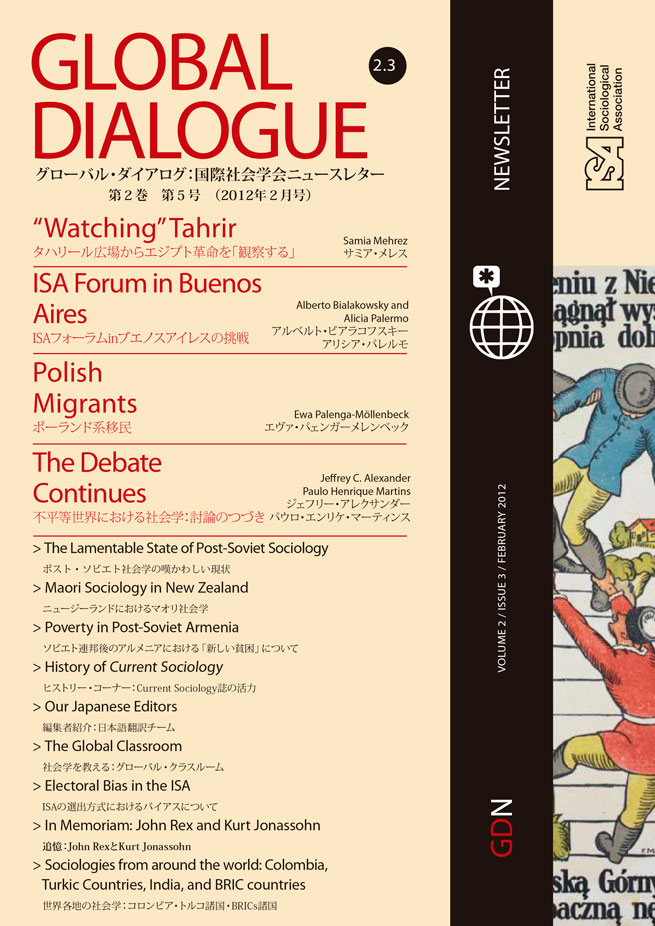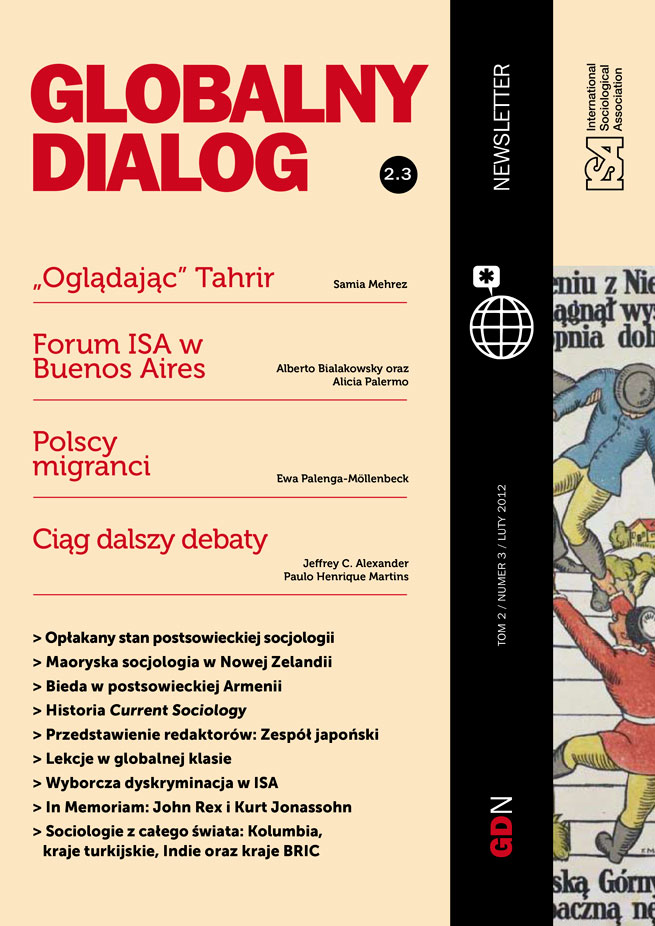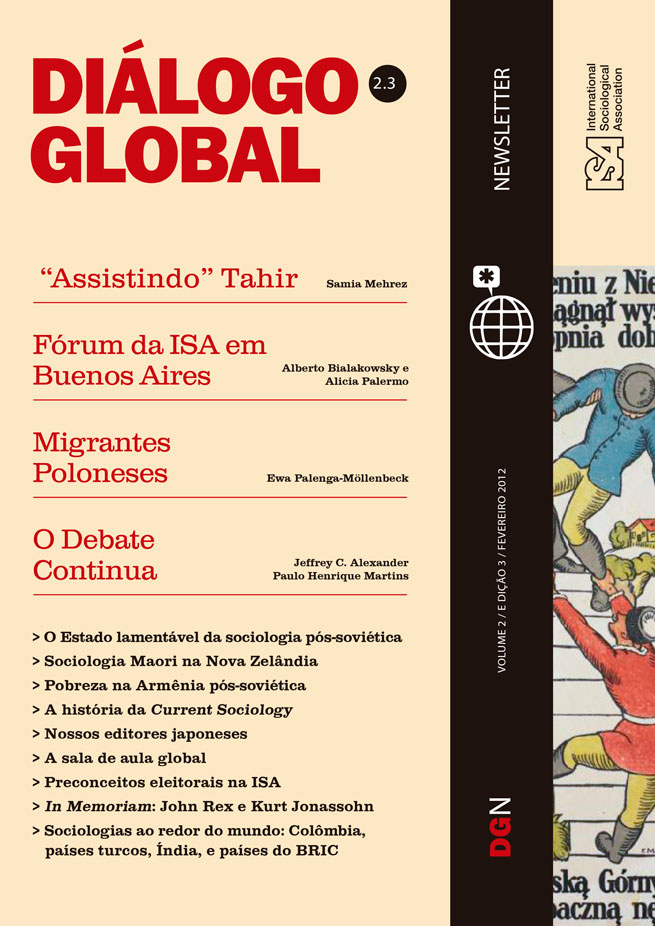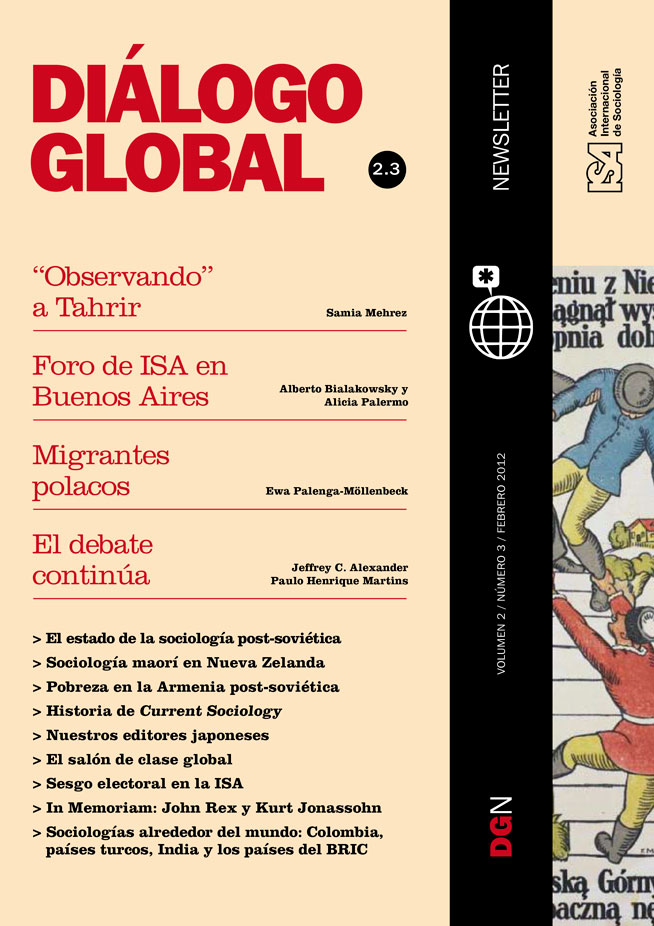Read more about Debate: Sociology in an Unequal World

Latin America – A Community of Destiny?
by Paulo Henrique Martins
March 01, 2012
This debate between Piotr Sztompka and Michael Burawoy is richly rewarding and long overdue. They are among the world’s best sociological theorists, but their dialogue is important, paradoxically, not because it is filled with spanking new ideas. To the contrary, their divergences are tried and true, as old as social thinking itself. It is, of course, precisely because these issues will not go away that the debate between them must be periodically sharpened and renewed.
Sociology aspires to rationality, universalism, and theoretical generality. Yet, while these themes represent spectacular achievements of the natural sciences, they can never be more than aspirational for the human sciences, as Wilhelm Dilthey explained more than a century ago. Like art, sociology is rooted in and reflects upon local conditions of life experience. This does not, however, mean that sociology is practiced in a purely local, self-referential manner.
Important painting has always been stylized by aesthetic traditions that transcend the styles within which local efforts find their mode of expression. In imperial China, such external styling came from the so-called classical traditions. In the emerging modern Western art of the 19th century, local European painters made continuous reference to what they called the modern tradition. Those who wished to constitute a national avant-garde made every effort to hyphenate local traditions with the extra-national aesthetic increasingly centered in Paris, and often left their national locales to abide inside the cosmopole, Paris itself.
It is no different with sociology. As with art, sociologies are “local” because they grow out of efforts to interpret the social experiences of a community in a particular time and place. American, British, French, and German sociologies are no exceptions. Each is different from the other, and each difference reflects the experiences of time and space that determine what is most needed to be sociologically known.
We learn much from reading national sociologies, about what overriding national concerns call out for interpretation, about nationally situated power struggles and nationally contested cultural meanings. We can learn all this, of course, only when these sociological writings are translated into the small number of the world’s relatively common languages, whether via conference presentation or published writing. It is such translation into trans-local languages that allows increasing knowledge about the local and concrete.
No more than art, however, can locally situated sociological efforts easily be conceptualized as products of concrete time and place. Indigenous sociologies are hardly indigenous. They are mediated by extra-local intellectual traditions of nations and by the global intellectual and religious traditions that have continuously reconstituted regional and national identities over centuries. Yes, there are Chinese and Taiwanese and Indian and Korean and Japanese sociological traditions, and they represent deeply cherished sources of local knowledge and insight. But such efforts are hardly reflections of local conditions! The local sociologists producing such studies are products of globalized training institutions, have weaned themselves on broad regional and international classics, and understand their own local societies in de-centered, cosmopolitan ways.
It is the existence of such “local cosmopolitanism” that makes every practicing sociologist, no matter how local, committed to extra-personal standards of validity, to the criteria of truthfulness that transcend his or her local institutional affiliation and social situation. It is perhaps only a slight exaggeration to suggest that every sociologist in the world has rational aspirations. Nobody allows their colleagues to claim the mantle of truthfulness merely because their work is energetic in its address of local problems, much less because their colleagues are, like them, African, Indian, American, or Chinese in origin. Sociology is reflexive because it is de-centered. Sociology is reflexive or it is nothing at all.
Art is the same. For most of the 19th century, American painting was mostly cut off from European currents; full of pride yet provincial, it is understood today, and sometimes greatly valued, as folkish and “naïve.” As the US developed in the later 19th century, aspiring painters traveled to Europe, mostly Paris, and in the first half of the 20th century America’s newly cosmopolitan locals produced distinctive but derivative versions of the French school. Only when the US emerged as a pre-eminent power after World War II did American painting come into its own, becoming world-historical in its own right. The “New York School” established a new global aesthetic. Yet, while physically located in the great American metropolis, Abstract Expressionism could hardly be seen as local, as reflecting indigenous American traditions. It marked, instead, an extension of the modern aesthetic that had been forged in Europe, and which had itself, 50 years earlier, been critically formed by incorporating Japanese, African, and pre-Columbian Aboriginal aesthetic themes.
So it will be with sociology. We are fortunate to be alive in the era when the extraordinary modernization of non-Western societies is allowing them to challenge Western hegemony for the first time in some 500 years. Eventually, this process of multiple modernities is bound to challenge, not only Western economic prowess and military might, but its hegemonic sociological theories and methods. When these Chinese or Indian or Korean and South African or Russian thinkers do throw down their theoretical and methodological gauntlets, however, they will do so not as indigenous species. Their works will be products of centuries of intense intellectual globalizing.
It is not from particular sociologies that a new universal will arise. Neither in sociology nor art are there real particulars. Neither are there true universals. There is neither and both at the same time.
Jeffrey C. Alexander, Yale University, USA, past Chair of the ISA Research Committee on Sociological Theory (RC16) and recipient of the ISA Mattei Dogan Foundation Prize, 2010
This issue is not available yet in this language.
Request to be notified when the issue is available in your language.
If you prefer, you can access previous issues available in your language:
